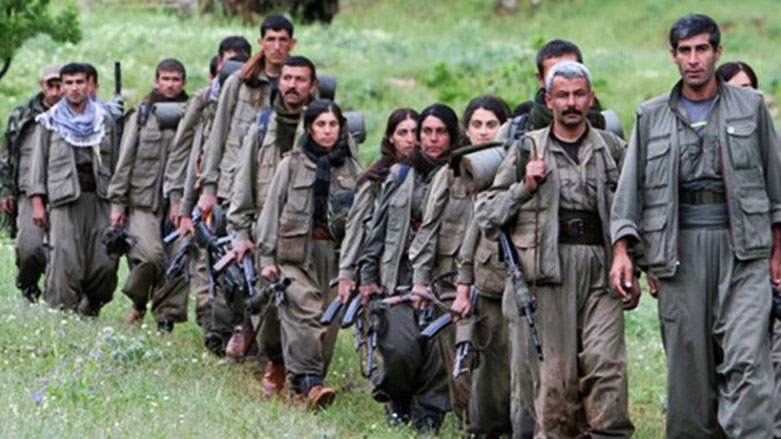EU Report: PKK recruitment, fundraising in Europe 'a matter of concern'
The European Union, in its 2020 annual Europol “Terrorism Situation and Trend Report,” stated on Tuesday that Europe continues to be used by the Kurdistan Workers’ Party (PKK) as a base to support its activities in Turkey.

ERBIL (Kurdistan 24) – The European Union, in its 2020 annual Europol “Terrorism Situation and Trend Report,” stated on Tuesday that Europe continues to be used by the Kurdistan Workers’ Party (PKK) as a base to support its activities in Turkey.
The PKK is engaged in a decades-long insurgency against Turkey over Kurdish rights and self-rule that has resulted in the death of over 40,000 people on both sides. It is also considered a “terrorist organization” by Turkey, the US, and NATO.
In the report, which aims to “record basic facts and assemble figures regarding terrorist attacks and arrests in the EU in 2019,” describes the PKK as an “ethno-nationalist and separatist terrorist group.”
It explains, although the group has not carried out any ”terrorist attacks” on EU soil, it “remains active in propaganda, recruitment and providing logistical support to its members,” adding that members and sympathizers of continue to be involved in both legal and illegal activities “to raise funds in order to support the group and its affiliates.”
Furthermore, the report noted the main source of income the PKK to be “annual fundraising campaign and cultural events,” including legitimate businesses, stating that “law enforcement in Germany shut down two companies suspected of being part of PKK organizational and financial structures across Europe.”
“Romania reported that in 2019 the PKK continued to be active in the collection of funds through their annual fundraising campaign, while Sweden and Turkey reported that the group is also involved in serious and organized criminal activities” in those countries as well.
The report described how the Turkish cross border attack of northern Syria in October 2019 had a strong impact on communities in the EU, leading to an increase in protests by Kurds across Europe, thus “exacerbating the tensions between Turkish and Kurdish communities in a number of European countries.” This, in turn, has led to clashes between Kurds and Turkish nationalists during protests and counter-protests in Belgium, Germany, and Switzerland.
The EU also expressed its concern regarding the left-wing extremists and anarchists that have travelled from the EU to Kurdish-populated areas of north-east Syria (Rojava) to join Kurdish militias, pointing out that “the threat that these individuals pose upon their return, due to the experience gained from their potential participation in combat, is a matter of concern.”
The PKK is headquartered in the neighboring Kurdistan Region's Zagros Mountains, along the Turkish and Iranian borders.
In recent years, Turkey has carried out military operations against PKK fighters based in the Kurdistan Region with continued regularity, with troops sometimes crossing into the region up to 20 kilometers deep to target the guerilla group.
During its bombings, Ankara has killed dozens of civilians unaffiliated to the PKK and has caused extensive damage to residences, farms, and killed locals’ livestock.
The Kurdistan Regional Government (KRG) on Friday condemned Turkish airstrikes earlier in the day that killed at least four Kurdish residents of areas near its northern border.
Read More: At least four civilians killed in Turkish air raid: sources
Residents of such areas, as well as the KRG, have long called on the Turkish military and the PKK to take their fighting elsewhere.
Editing by John J. Catherine